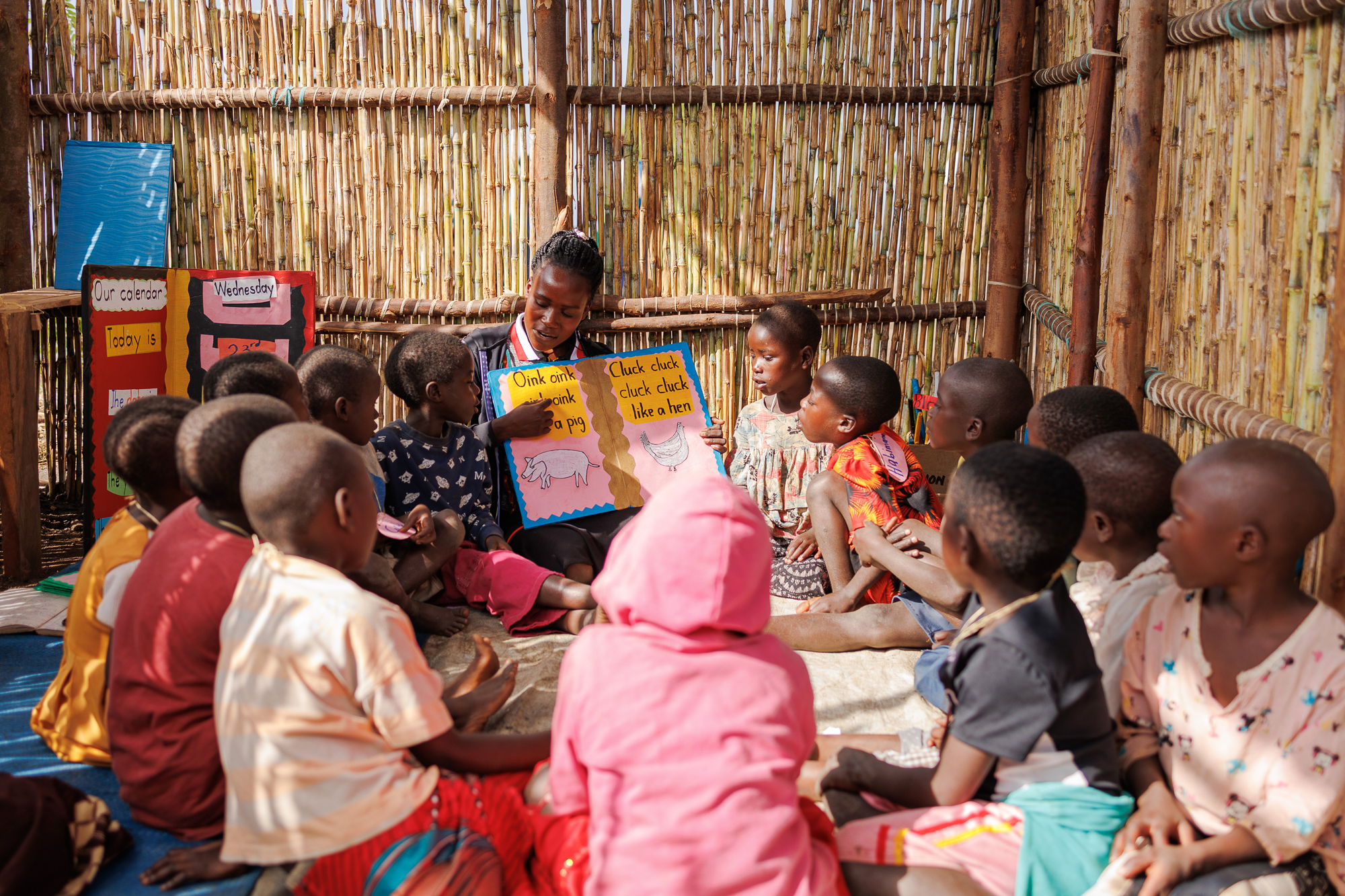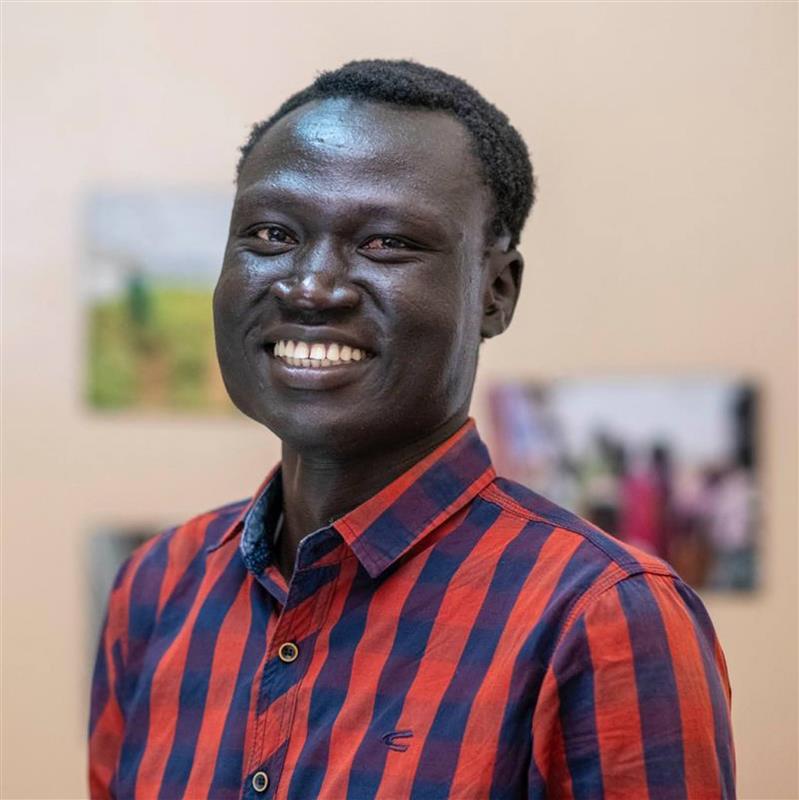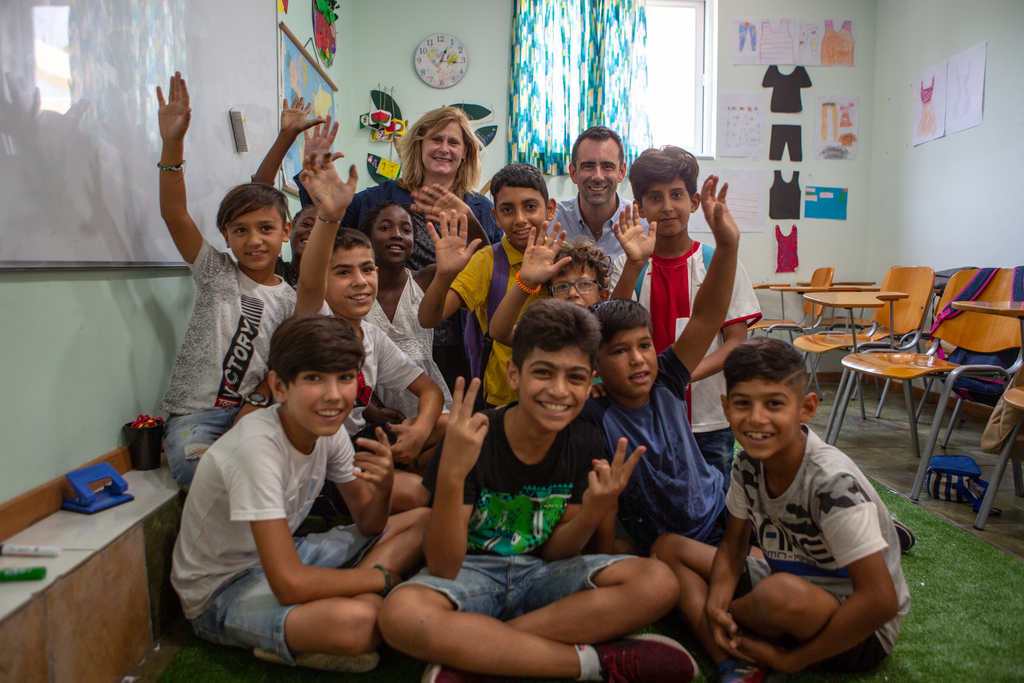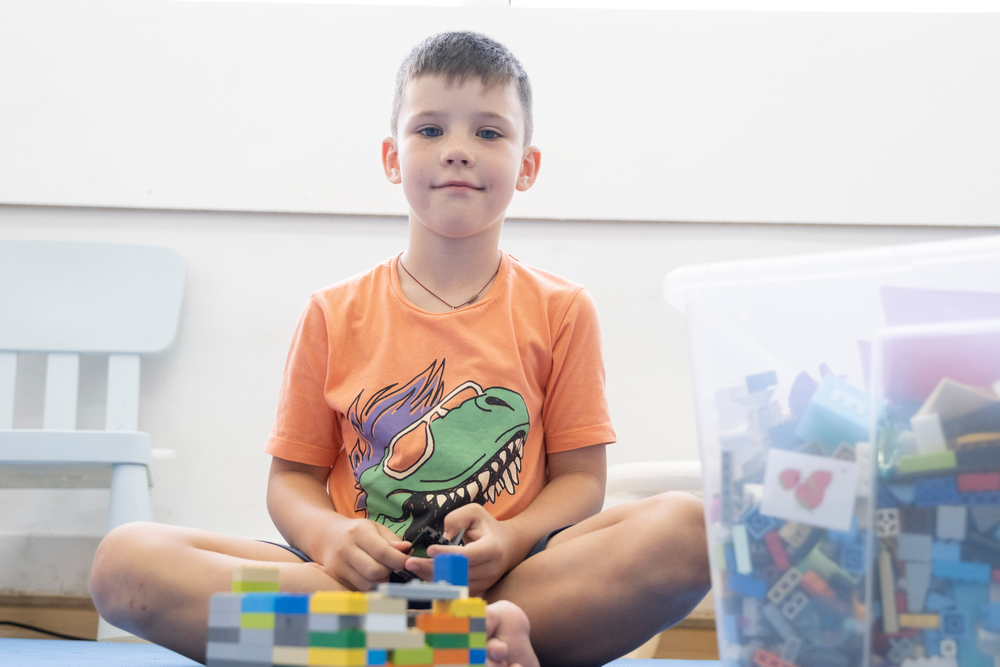Why world leaders must seize this chance to properly fund refugee education

Theirworld wants the Transforming Education Summit this month to result in three major actions - here we spotlight the need to support learning for refugee and displaced children.
The background
Theirworld and young campaigners are calling on world leaders meeting at the Transforming Education Summit later this month to take three major actions to tackle the global education crisis.
By listening to the voices and experiences of young people, decision-makers and government ministers should pledge action to:
- Invest 10% of all education funding in early childhood education
- Invest at least 6% to 10% of humanitarian assistance in education for refugees and displaced people
- Launch the International Finance Facility for Education (IFFEd) as part of a new global finance plan to achieve education for all by 2030
Each week until the summit, we will look more in-depth at the background to each of our three demands. Today we spotlight education for children and youth who are refugees or displaced in their own countries.

The summit
Held during the United Nations General Assembly in New York from September 16-19, the Transforming Education Summit is a once-in-a-generation opportunity to truly tackle the global education crisis. There are 260 million children out of school and hundreds of millions not learning basic skills.
Theirworld and our 2,000 Global Youth Ambassadors in more than 100 countries are calling for world leaders to make decisive and long-lasting commitments at the summit.
Part of our #LetMeLearn campaign, our proposed actions are based on consultations with youth and education experts.
The refugee issue
There are more refugees now than at any time since the Second World War. Latest figures from the UN refugee agency UNHCR show that of the 89.1 million forcibly displaced people, 36.5 million (41%) are under 18.
Each year about 75 million children have their education disrupted due to humanitarian emergencies. These include natural disasters and conflicts – the latest crisis being the war in Ukraine.
Nearly half of school-age refugee children are out of school, according to UNICEF. Children whose lives are affected by emergencies can suffer grave long-term consequences. A child out of school for more than a year is unlikely to return.
Education gives refugee and displaced children a sense of structure, purpose and security. Getting children back into school quickly after a crisis can prevent them from falling into child labour, child marriage, exploitation and recruitment by armed groups.

When I fled my home 11 years ago, the first thing that came to my mind was school. It gave me a safe space where I could heal from my trauma
Nhial Deng, a 23-year-old Theirworld Global Youth Ambassador from South Sudan, describing his arrival at the Kakuma refugee camp in Kenya.
The challenge
Although education is one of the first things a refugee child loses, it is often the last service to be restored.
Sadly, humanitarian aid to education is overlooked and continues to lag far behind other sectors. The share of aid funding to education was a paltry 0.9% in 2000. The UN set a target of 4% in 2012 – but by 2018 it had risen to just 3.2%. And it fell again in 2019 to 2.6%.
To deliver a quality education for all refugee and displaced children, we need to mobilise huge political will and commitments to increase funding.
The opportunity
Theirworld has called on leaders and donors to commit to increasing the share of humanitarian aid for education to at least 6% and as high as 10% – a target the European Union has already set itself. It certainly needs an urgent rise in the short term to at least 4%.
The summit is the perfect opportunity for governments and donors to show they’re serious about supporting education for children uprooted by conflicts and crises.
Elizabeth Pennington, a 25-year-old Global Youth Ambassador from the UK, attended the Transforming Education Pre-Summit in Paris in June. She said: “In my own work with refugee and displaced populations, I have seen the direct impact that being out of school can have on a child’s life. It is vital that world leaders ensure that inclusive education is not just ticking a box but a guaranteed right.”

Refugee and displaced children at an education centre on the Greek island of Kos are visited by Theirworld President Justin van Fleet and Theirworld Chair Sarah Brown in 2019 (Theirworld)
Theirworld’s role
For years, we have been campaigning for refugee education. We proposed innovative ideas such as the double-shift school system in Lebanon, which resulted in 300,000 Syrian refugee children being enrolled. And we led the call to create Education Cannot Wait, the global fund for education in emergencies, which has now reached more than seven million children in crisis areas.
In Greece, Theirworld developed a blueprint that showed how authorities could offer every refugee child the chance of an education. It was adopted by the Greek government and UNICEF, who committed to provide a route for 26,000 school-age refugee children into formal education over three years.
The All Children in Education (ACE) programme, supported by Theirworld, helps children like seven-year-old Oleksandr, who arrived in Greece as a refugee from Ukraine. The language barrier meant he struggled to fit in. But he and thousands of other children and teenagers are learning Greek and English and now thriving at their new schools and learning centres.

The school here helps him to become more sociable, not to be afraid
Oleksandr’s mother Tetyana
Now we’re campaigning to unlock big change at the summit in New York. We only launched the #LetMeLearn campaign at the beginning of August – but already it’s grown into a global movement embraced by youth activists, civil society organisations, celebrities and the United Nations.
What you can do
Support the #LetMeLearn campaign
Learn more about refugees and education at The Key, Theirworld’s online advocacy toolkit.